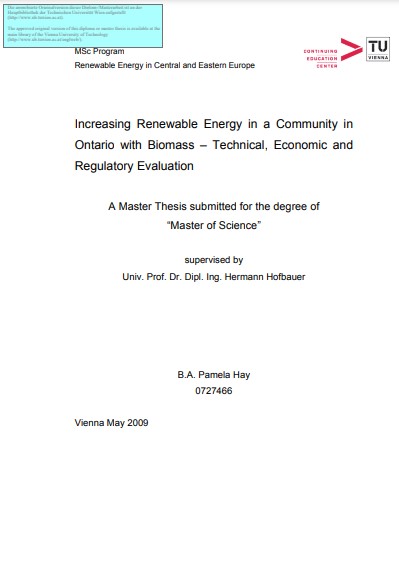Increasing renewable energy in a community in Ontario with biomass: technical, economic and regulatory evaluation.
Bosque Modelo:
Eastern Ontario
Temática:
Desarrollo humano
Tipo de documento:
Tesis de postgrado
Resumen
The core objective of this work is to determine whether a renewable energy option based on biomass could replace some of the current energy mix in the community of Kingston, Ontario, Canada and be economically, technically and socially feasible within the existing regulatory framework. Four different options are examined: 1) a 40 MW wood-chip CHP combustion plant generating 10 MW electric and no heat; 2) a 40 MW wood chip CHP combustion plant generating 4 MW electric and 30 MW heat; 3) a 40 MW wood-chip CHP gasification plant generating 10 MW electric and 24 MW heat; and a 2 MW biogas plant generating 2 MW electric and 2 MW heat. All four options make use of existing feedstock in and around Kingston, namely wood, crop residue and animal waste from farming. In all 4 cases the projects are economically, technically and socially feasible. To determine the degree to which Kingston can reduce its annual greenhouse gases as a result of implementing 2 of the options, statistics for Kingston’s green house gases for 2006 are used, and Kingston’s own target for reducing its CO2 emissions by 16% below 2006 by 2020 are compared.
Información Bibliográfica
Autor:
Hay, P.
Año:
2009
País :
Canadá
Páginas:
-
Idioma:
Ingles
Palabras claves
Energy, Climate change, biomass





